Our Habit Of War: 5 Mistakes We Make
OUR HABIT OF WAR: 5 MISTAKES WE MAKE (ISSUE 143) AUGUST 26, 2014
By Diane Gold
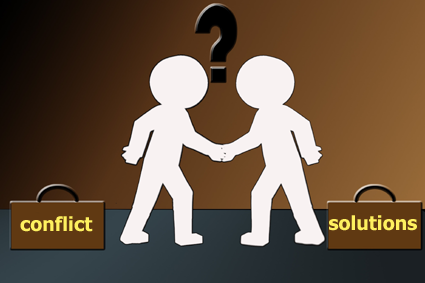 Our habit of war is based upon our upbringing. We learn to stand up for ourselves, but we are not always groomed in the world of tolerance and forgiveness. We are taught that courage means fighting for our place, rather than showing that changing someone’s mind through talk is far braver.
Our habit of war is based upon our upbringing. We learn to stand up for ourselves, but we are not always groomed in the world of tolerance and forgiveness. We are taught that courage means fighting for our place, rather than showing that changing someone’s mind through talk is far braver.
1) NOT LOOKING THROUGH OUR ENEMY’S EYES
In order to see what our opponent sees, we must look through her eyes. The only way to do this is to listen to her story, through research or face-to-face meeting. The only way to listen is to place our entire agenda on hold. We may have to imagine that the file cabinet with our belief information is closed and inaccessible for a certain period of time.
Once we do this, we have an easier time seeing another way, even if it is against what we believe. We can go back to our agenda and our belief system later, but, in the meantime, we may learn something about our enemy that helps us progress to resolve.
This is both frightening and brave but may be the true solution to resolving many conflicts. Martial artists, law enforcers and military commanders consider their opponent’s politics, history and reasoning before considering approach. Looking through another eyes takes temperance. Temperance is what is required for a settlement of any conflict.
2) DOING WRONG BECAUSE OF PRIDE
We are all very proud and committed to our birth country, our adopted country, our family’s land, our culture, especially if someone else wants to or has taken it away. The fact of the loss, when someone has taken it away or when we have agreed to give it away, builds our pride even more. In other words, we feel more connected to our birth place, our parent’s birth place or our culture if someone outside it controls it and takes it from our grasp.
When we let pride rule us, we become blinded by it. This does not help create a new agreement.
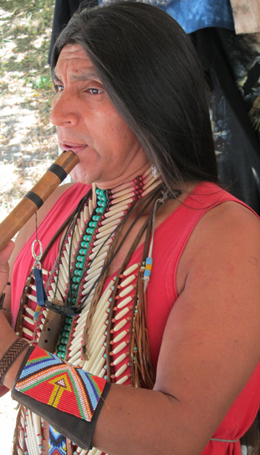 An example of successful use of pride can be seen in the first people in the United States, American Indians, whose connotation “Native Americans” currently includes Alaskan Natives, Native Hawaiians and American Samoans. In order for these groups to live in peace on land that was acquired by their ancestors, they had to participate willingly in a process of cooperation, compromise and huge sacrifice. They chose to be proud of their heritage at the same time as they agreed to give some land to get security, restitution and to live in peace. (When I say successful pride, I use the word “success” to mean making the best of a not so good situation.
An example of successful use of pride can be seen in the first people in the United States, American Indians, whose connotation “Native Americans” currently includes Alaskan Natives, Native Hawaiians and American Samoans. In order for these groups to live in peace on land that was acquired by their ancestors, they had to participate willingly in a process of cooperation, compromise and huge sacrifice. They chose to be proud of their heritage at the same time as they agreed to give some land to get security, restitution and to live in peace. (When I say successful pride, I use the word “success” to mean making the best of a not so good situation.
They chose peace of mind to live stably by giving up most of their land, knowing that no one would ever take it away again and the remaining land would be protected and paid for.)
Here is how it worked. The Europeans came west, across the Atlantic, and claimed land that was already lived on, not thinking it belonged to American Indians, only thinking they found it so would lay claim. They had might, so they thought they had right.
Years later, to make amends for this action, whether for the eyes of the world or for our own consciences, we (Americans, born from immigrants) have made efforts to offer ongoing payment for land and mineral rights we have claimed as our own, we offer military protection, we offer the security of U.S. citizenship with the ability for registered tribes to govern autonomously as independent nations. (Yes, all American citizens pay U.S. federal income tax, whether part of a tribal treaty or not.)
So, we live in peace together, even though no one other than American Indians and Native Alaskans, had those rights.
3) NOT AVIDLY REPORTING SOLUTIONS FROM SCIENTIFIC STUDIES OF WAR
Scientists in all the fields, be they biological, chemical, psychosocial, economic, civil have written brilliant papers on how the mind, the body, the society work. These truly affect how we think about humanity, what we believe and how we live our lives.
These great minds may have created solutions to war, needed by our species; yet no one is talking about this work or publicizing it for use.
We are working on cancer which, like war, is one entity taking over territory where it wasn’t before and where it is encroaching now. We are working on psychology of mind, how people think in common. Our philosophers are working on ethics. And we are geniuses at creating markets and consumers.
So what is the hold up? Why don’t we take the solutions to war that our studies and researchers have unfolded and role play them in our universities, high schools and all our hoity toity charity events for use in the field?

Please don’t tell me the answer is because there are too many industries who make their entire livelihood from wars. This would be as counter-humanitarian as having cures for cancer and not sharing them because the profit from current cancer treatment is so astronomical. Can we hope these are not the reasons?
4) NOT USING THE TREATY OF NON-PROLIFERATION OF NUCLEAR WEAPONS AS A MODEL TO REDUCE SMALLER WEAPONS
Many nations signed the Treaty of Non-Proliferation of Nuclear Weapons. We did so for the sake of humanity. We realized that using nuclear weapons could annihilate tribes, territories, countries, civilizations, and, ultimately, our entire species; so many of us agreed not to develop nuclear weapons in countries who did not already have them.
This model seems ripe for duplication and edification. We could scale down the use of weaponry by creating the Weaponry Scale Treaty. All signers would admit that all human life is precious, that we will work to avoid any loss of life and that every loss of life, no matter whose, is a tragic loss to someone. Before any weapons would be allowed to be used, countries/territories who signed the treaty would go through a three-level process before any military action could take place:
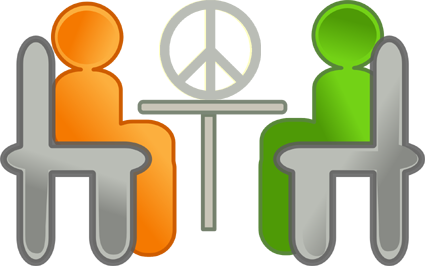 There would be 3 sets of peace conferences: the first, with representatives at the Secretary of State level. If no agreement were reached here, the second conference would include military commanders at a high level. If no agreement were reached through conference with these individuals, the third conference would include the second in command of the respective territory/country.
There would be 3 sets of peace conferences: the first, with representatives at the Secretary of State level. If no agreement were reached here, the second conference would include military commanders at a high level. If no agreement were reached through conference with these individuals, the third conference would include the second in command of the respective territory/country.
Each conference would be for no less than 72 hours. Each subsequent conference would take place 72 hours after the conference before it. Each member of every conference would recite these words at the beginning of the conference,
“We, the representatives of our respective territories, admit that all human life is precious, that we will work to avoid any loss of life and that every loss of life, no matter whose, is a tragic loss to someone. Our territories disagree, but we will make every effort during this conference to create a non-military solution to our disagreement.”
The conference between these 2 representatives would aim to work out the solution as follows: at least 3 suggested compromises would be proposed. Each of these compromises would be publicly listed within 24 hours of creation and circulated to international media.
5) NOT LETTING GO OF PREJUDICE
In a previous article, at http://warriorsofweight.com/prejudice-is-a-habit-we-can-replace, we have talked about how we are trained through repetition to be prejudiced. And that we can replace this training by realizing that we are all made out of the same skin, and that we all breathe the same air.
If we clear our minds every day so that we can put new information into it, we let go of the past repetitions that caused the prejudice. Most of us don’t do this, since there is comfort in being part of a group mindset, and we have been trained that vengeance is good.
It is not. It is a mistake that we keep repeating over and over again. We disagree, we fight, we kill, then we live a little until we disagree, we fight, we kill, then we live a little until… We have never learned the peace process. Isn’t it time?
CONCLUSION
Missing The Ring On The Carousel I am not a military strategist. I am a thoughtful human being who sees the cyclic behavior of human beings and how we keep missing the ring on the carousel. Our habit of war is based upon being trained to take revenge. We omit looking through another’s eyes.
What if we replaced our habit of war? What would our first action be? We would, of course, have to create new products for the companies who profit from war, and we would have to continue to spread action steps for peace throughout the world. But, if we replaced our old habit with the habit of temperance, how amazing would that be!
ACTION STEPS
What is not effective exclusively is training ourselves in personal development. This is necessary and crucial, but if we don’t take this training further; we are not fulfilling the bigger need.
1) SPEAK TO A MILITARY VETERAN
Talk to someone who has seen combat, and ask how peace can be achieved. Should you not know where to talk to one, visit a veteran’s hospital. There are many.
2) JOIN OR CREATE A PEACE PROCESS GROUP
By acting out conflict, we get to see how difficult it is, and we get to use various techniques for progress. Make sure that looking through the other person’s eyes is part of the process.
You can refer to steps at http://warriorsofweight.com/the-peace-process-a-step-by-step-formula-to-achieve-peace-and-replace-overeating-at-the-same-time.
3) ASK 1 PERSON TO JOIN YOU IN THE PEACE PROCESS GROUP
By telling one person, you increase the knowledge and the chance we have to achieve understanding on the road to peace.
The Road To Peace
![]()
If you wish to share your story, please hit reply in your email program to be contacted.
![]()
FEEDBACK
We value your feedback very much.
Please leave a comment below.
Please LIKE us on the website and at
WarriorsOfWeight on Facebook.
You can also follow us on Twitter: @warriorsoweight.
Thanks.
![]()
DIANE GOLD, PUBLISHER AND AUTHOR
Diane Gold, Founder of Warriors of Weight, Turning Habits Into Health, is a mentor in tai chi, kung fu and meditation, a music, fitness and stress expert, dedicated mom, studying plant-based nutrition, peaceful conflict resolution and habit replacement.
She believes in the good in all people. Lately, she has been thinking about the immediate challenges of ongoing conflict resolution. She says,
“The most difficult work in the world is getting along with another person when there’s disagreement. It is multiplied by each individual when it is a group conflict. As civilized people, we learn by sheer will that it is possible to cooperate with each other and temper ourselves. Sometimes, we have to hold our words, our actions, our dreams in order to build the bridge of compromise. Sometimes, we just give because we are willing to do it for the sake of a peaceful resolution or because we are better able to place our ego or pride in the imaginary box right outside the door.
“Is there a winner to a disagreement? Hopefully, both parties are willing to look through the other’s eyes. Let us work toward this grand feat.
“Finally, let us all take good care of ourselves because we are so worth it!”
![]()

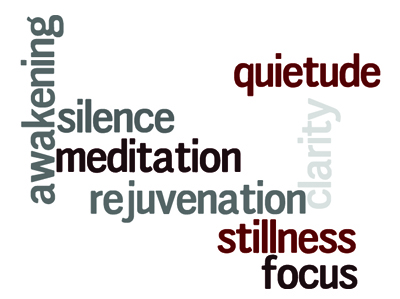 A definition for this discipline that mirrors mine is this, given by Deepak Chopra, M.D., speaker and author,
A definition for this discipline that mirrors mine is this, given by Deepak Chopra, M.D., speaker and author,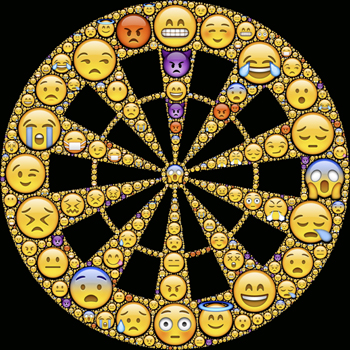 All throughout the day, each of us has so many stimuli: noises, smells, people, electronics, world events, our own creative projects and work, our family and friends. As we walk to our car, bike, train, we see all the different parts of each person that may draw our attention.
All throughout the day, each of us has so many stimuli: noises, smells, people, electronics, world events, our own creative projects and work, our family and friends. As we walk to our car, bike, train, we see all the different parts of each person that may draw our attention.

 When we do tai chi, free dance, body shaking; we’re so absorbed in the body movement that it’s hard to lose our focus since we would we would lose our physical balance if our attention strayed. That’s why it is massively easier to rule out external stimuli when we’re physically moving.
When we do tai chi, free dance, body shaking; we’re so absorbed in the body movement that it’s hard to lose our focus since we would we would lose our physical balance if our attention strayed. That’s why it is massively easier to rule out external stimuli when we’re physically moving.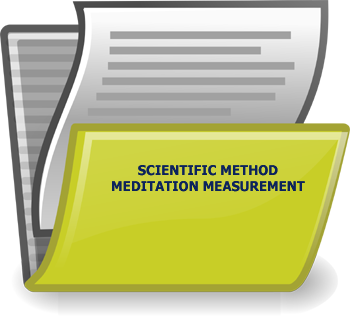 Medical research studies have confirmed that meditation reduces blood pressure, anxiety, PTSD, cholesterol, depression, stress. In April, 2014, a team at Brown University finally structured the coding of verbal responses that can be correlated to quantitative neurophysiological measurements.
Medical research studies have confirmed that meditation reduces blood pressure, anxiety, PTSD, cholesterol, depression, stress. In April, 2014, a team at Brown University finally structured the coding of verbal responses that can be correlated to quantitative neurophysiological measurements.

 When the preacher or leader of our chosen group discourses that our particular congregation of members is loved more than other religious groups, we are refining how we see the world. Our ego becomes falsely inflated with the knowledge that we are in a special tribe which means we have been taught that there are other tribes less worthy. We have been lifted up while others have been lowered.
When the preacher or leader of our chosen group discourses that our particular congregation of members is loved more than other religious groups, we are refining how we see the world. Our ego becomes falsely inflated with the knowledge that we are in a special tribe which means we have been taught that there are other tribes less worthy. We have been lifted up while others have been lowered.
 Anyone who teases, bullies, insults people with lesser intellectual capacity, less expensive clothing, a physical imperfection, is doing it to inflate the ego. It serves no other purpose. This has come out of the original “good job” that was uttered way back when to encourage us along into the competitive world. This simple statement or one like it started our competition engine, but competition is not the culprit here. It what we were supposed to learn along with this concept.
Anyone who teases, bullies, insults people with lesser intellectual capacity, less expensive clothing, a physical imperfection, is doing it to inflate the ego. It serves no other purpose. This has come out of the original “good job” that was uttered way back when to encourage us along into the competitive world. This simple statement or one like it started our competition engine, but competition is not the culprit here. It what we were supposed to learn along with this concept. It what we were supposed to learn along with this concept.
It what we were supposed to learn along with this concept.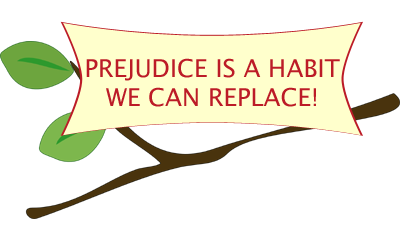 Prejudice is a habit we can replace. We are not born with it. It is part of our training: at home, in school, in the neighborhood, from peer pressure, peer example (social proof) and from the media.
Prejudice is a habit we can replace. We are not born with it. It is part of our training: at home, in school, in the neighborhood, from peer pressure, peer example (social proof) and from the media. The complex ways in which our minds are colored in a certain direction usually come from wanting comfort such as personal protection or to fit into a crowd or feel good about ourselves.
The complex ways in which our minds are colored in a certain direction usually come from wanting comfort such as personal protection or to fit into a crowd or feel good about ourselves. When someone takes our land, in the name of the individual, a cause, a race, a religion; we have a reaction. Because we have been taught that we have the rights to our land, we may equate this takeover with looting and attribute such looting to an entire group of a billion people, for whom we develop prejudice, even if only 50 people were involved.
When someone takes our land, in the name of the individual, a cause, a race, a religion; we have a reaction. Because we have been taught that we have the rights to our land, we may equate this takeover with looting and attribute such looting to an entire group of a billion people, for whom we develop prejudice, even if only 50 people were involved. The solution to replace any habit is to replace the behavior we do when we get the urge that we get. From my experience and from the time it takes our hormones to activate, I calculate we have 15 seconds. This takes into account how strongly and fervently our mind will grab onto our old habit and act accordingly. So, if we have previously done nothing when we have the urge to resolve the conflicts with the particular neighbors who wronged us, our reward, or the result of our actions, is a negative reward. We end up frustrated, angry, forlorn because we have been violated in some way by an entire group. The final reward of this non-action that we do is, you guessed it, prejudice. This is our justification for many irrational, out of scope future actions and current feelings we have.
The solution to replace any habit is to replace the behavior we do when we get the urge that we get. From my experience and from the time it takes our hormones to activate, I calculate we have 15 seconds. This takes into account how strongly and fervently our mind will grab onto our old habit and act accordingly. So, if we have previously done nothing when we have the urge to resolve the conflicts with the particular neighbors who wronged us, our reward, or the result of our actions, is a negative reward. We end up frustrated, angry, forlorn because we have been violated in some way by an entire group. The final reward of this non-action that we do is, you guessed it, prejudice. This is our justification for many irrational, out of scope future actions and current feelings we have.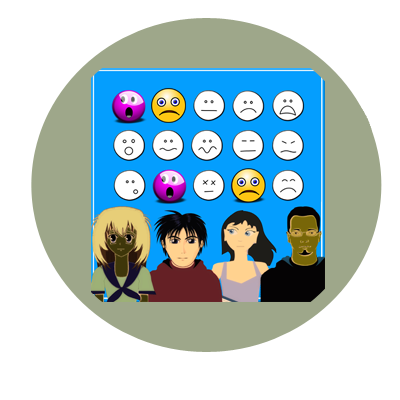
 Turmeric benefits have been known in India for thousands of years. This spice has been used by many tribes, throughout many cultures with a myriad of applications. It spread from India to China to the East Indies (it’s naturalized in Jamaica now), to Polynesia, Hawaii, East Africa, West Africa and is a staple in many kitchens and medicine chests.
Turmeric benefits have been known in India for thousands of years. This spice has been used by many tribes, throughout many cultures with a myriad of applications. It spread from India to China to the East Indies (it’s naturalized in Jamaica now), to Polynesia, Hawaii, East Africa, West Africa and is a staple in many kitchens and medicine chests. In the abstract of the study reported in Journal Of Nutritional Biochemistry, it states that this 6-month use of turmeric showed an increase in adiponectin levels increased and a decrease in leptin levels. These hormones, in the reported measures, are distinctly connected with lowered appetite, indicating a possible reason for lowered weight with the use of turmeric in Type 2 diabetics.
In the abstract of the study reported in Journal Of Nutritional Biochemistry, it states that this 6-month use of turmeric showed an increase in adiponectin levels increased and a decrease in leptin levels. These hormones, in the reported measures, are distinctly connected with lowered appetite, indicating a possible reason for lowered weight with the use of turmeric in Type 2 diabetics. Turmeric, or its main ingredient, curcumin, may positively affect brain function in Alzheimer’s patients. The NIH abstract from a study published in Annals of Indian Academy Of Neurology, Jan-Mar, 2008, (ncbi.nlm.nih.gov/pmc/articles/PMC2781139) says,
Turmeric, or its main ingredient, curcumin, may positively affect brain function in Alzheimer’s patients. The NIH abstract from a study published in Annals of Indian Academy Of Neurology, Jan-Mar, 2008, (ncbi.nlm.nih.gov/pmc/articles/PMC2781139) says,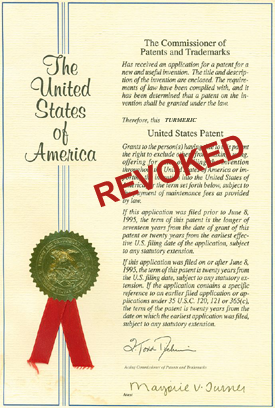 Very important for turmeric’s survival as a NON-PHARMACEUTICAL substance, is the United States patent that was given to University of Mississippi in 1995 for wound healing that, in 1997, due to a piracy complaint by The Council for Industrial Research stating that turmeric had been in use for thousands of years in India, was REVOKED.
Very important for turmeric’s survival as a NON-PHARMACEUTICAL substance, is the United States patent that was given to University of Mississippi in 1995 for wound healing that, in 1997, due to a piracy complaint by The Council for Industrial Research stating that turmeric had been in use for thousands of years in India, was REVOKED. The only way a drug company would output the median amount per drug development, $350 million (according to Forbes’ Aug. 11, 2013, article citing Innothink Center For Research In Biomedical Innovation with the statistic) for a substance to be approved by the FDA (Food And Drug Administration) to market would be if the outcoming drug were patentable.
The only way a drug company would output the median amount per drug development, $350 million (according to Forbes’ Aug. 11, 2013, article citing Innothink Center For Research In Biomedical Innovation with the statistic) for a substance to be approved by the FDA (Food And Drug Administration) to market would be if the outcoming drug were patentable. All in all, turmeric is great. I eat it every day. It’s one of the few veggies I eat that I will buy even if it’s not organic – because turmeric is good for me and even though, in 2008, the Hungarian Food Safety Office reported a crop of Thai turmeric to contain over 10 times their acceptable level of the pesticides methomyl and thiobicarb.
All in all, turmeric is great. I eat it every day. It’s one of the few veggies I eat that I will buy even if it’s not organic – because turmeric is good for me and even though, in 2008, the Hungarian Food Safety Office reported a crop of Thai turmeric to contain over 10 times their acceptable level of the pesticides methomyl and thiobicarb. What if Nike’s logo meant food for the poor plus water, clothing, shelter, health care? Or Apple’s or ExxonMobil’s? What if these multinational corporations’
What if Nike’s logo meant food for the poor plus water, clothing, shelter, health care? Or Apple’s or ExxonMobil’s? What if these multinational corporations’
 Imagine Apple 2.0 Corporation, worth the $500 billion it is now, focusing its primary attention on helping people get adequate and healthy food, clothing and shelter. And all their artists, designers, technicians and computer scientists were putting full effort into creating the best ways to feed, hydrate, clothe, care for and house everyone adequately.
Imagine Apple 2.0 Corporation, worth the $500 billion it is now, focusing its primary attention on helping people get adequate and healthy food, clothing and shelter. And all their artists, designers, technicians and computer scientists were putting full effort into creating the best ways to feed, hydrate, clothe, care for and house everyone adequately. What does it mean to be civilized? Does it mean being more sophisticated by wearing upscale and fancy clothing while we pillage the environment to get raw materials to manufacture modern comforts OR does it mean living sustainably without taking more than is necessary for community survival while insuring the rebirth of the resources used for survival?
What does it mean to be civilized? Does it mean being more sophisticated by wearing upscale and fancy clothing while we pillage the environment to get raw materials to manufacture modern comforts OR does it mean living sustainably without taking more than is necessary for community survival while insuring the rebirth of the resources used for survival?
 The answer is not as mind boggling as I thought it was. It’s right in front of you and me. It’s tithing, an old English unit meaning one-tenth of something. Much of the developing country manipulation could be monitored, and every corporation that made over one billion one hundred eleven million dollars would be required to give 10% of its gross profit to those in need for food, clothing, shelter, water and health care. The collector of this profit would have to be an independent agent, a non-government, non-profit establishment that published all incoming and outgoing funding to the public.
The answer is not as mind boggling as I thought it was. It’s right in front of you and me. It’s tithing, an old English unit meaning one-tenth of something. Much of the developing country manipulation could be monitored, and every corporation that made over one billion one hundred eleven million dollars would be required to give 10% of its gross profit to those in need for food, clothing, shelter, water and health care. The collector of this profit would have to be an independent agent, a non-government, non-profit establishment that published all incoming and outgoing funding to the public.

 I finished the test with no major reactions and went on my merry way, although I felt violated. Almost immediately after leaving the medical office, I started feeling speedy. And then more speedy, and then more speedy, to the point where I was sweating with my heart’s racing; I knew I was sick and was having a reaction to albuterol.
I finished the test with no major reactions and went on my merry way, although I felt violated. Almost immediately after leaving the medical office, I started feeling speedy. And then more speedy, and then more speedy, to the point where I was sweating with my heart’s racing; I knew I was sick and was having a reaction to albuterol. Since I lived, my mind started to run away with me, and I thought about running to get my medical records for the attorney. I calmed down and realized a much better solution instead of pointing fingers, blaming and taking to the legal system I so revere.
Since I lived, my mind started to run away with me, and I thought about running to get my medical records for the attorney. I calmed down and realized a much better solution instead of pointing fingers, blaming and taking to the legal system I so revere.
 Although the Hippocratic Oath, taken by every MD, includes keeping oneself away from seduction; the biggest seduction and the one most difficult to see as we are being seduced is the seduction of the ego, thinking we are the skilled, the almighty and the awakener with a better solution than the patient. The Osteopathic Oath mentions retaining the respect of the patient. If we are filled with ego and if we disrespect our patient’s rights, how are we fulfilling our oath?
Although the Hippocratic Oath, taken by every MD, includes keeping oneself away from seduction; the biggest seduction and the one most difficult to see as we are being seduced is the seduction of the ego, thinking we are the skilled, the almighty and the awakener with a better solution than the patient. The Osteopathic Oath mentions retaining the respect of the patient. If we are filled with ego and if we disrespect our patient’s rights, how are we fulfilling our oath? In conclusion, it’s important to be aware that the doctor is a consultant from whom we can hear expert opinion. S/he has studied hard to be able to evaluate a certain brand and branch of medicine. Unfortunately, the doctor who has studied Eastern medicine, Western medicine, Native American medicine, Latin American plant medicine and international tribal medicine is in the best position to give medical guidance; but I don’t know of any who have all this training.
In conclusion, it’s important to be aware that the doctor is a consultant from whom we can hear expert opinion. S/he has studied hard to be able to evaluate a certain brand and branch of medicine. Unfortunately, the doctor who has studied Eastern medicine, Western medicine, Native American medicine, Latin American plant medicine and international tribal medicine is in the best position to give medical guidance; but I don’t know of any who have all this training.
 Wouldn’t it be nice if the plant based food industry were a cooperative in itself and could get a direct benefit from creating such a course for medical professionals the way pharmaceutical companies benefit directly from courses they give on their new drugs as solutions for specific diagnoses.
Wouldn’t it be nice if the plant based food industry were a cooperative in itself and could get a direct benefit from creating such a course for medical professionals the way pharmaceutical companies benefit directly from courses they give on their new drugs as solutions for specific diagnoses.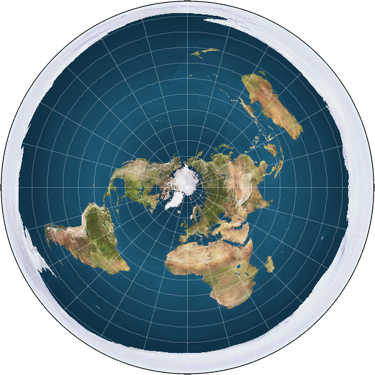 When we say, “The World Is Flat,” people look puzzled because our current perception of truth is different from this. But, at one time, this was current thought. This article aims to show how, with new or updated information, what we used to perceive as true is replaced by a new perception, which may or may not be what truly exists in the real world and how through mis-education or swarm mentality, we may not be seeing the real truth, supporting what is ethical and being the best that we can be.
When we say, “The World Is Flat,” people look puzzled because our current perception of truth is different from this. But, at one time, this was current thought. This article aims to show how, with new or updated information, what we used to perceive as true is replaced by a new perception, which may or may not be what truly exists in the real world and how through mis-education or swarm mentality, we may not be seeing the real truth, supporting what is ethical and being the best that we can be.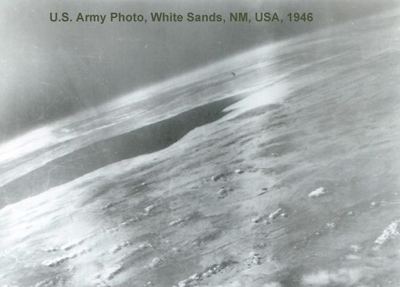 Overwhelming evidence to the contrary appeared. Navigational instruments were using more sophisticated instruments to calculate distances, Magellan’s crew circumnavigated the world, (Magellan died before the culmination of the voyage in 1521), student education was more accurately based on scientific evidence rather than perception.
Overwhelming evidence to the contrary appeared. Navigational instruments were using more sophisticated instruments to calculate distances, Magellan’s crew circumnavigated the world, (Magellan died before the culmination of the voyage in 1521), student education was more accurately based on scientific evidence rather than perception. We each have mixed perceptions about getting ahead. We each define our own ethical lines. Some of us believe we have to go about excellence through the bureaucratic systems that exist within multinationals, (such as corporations being friends with media outlet owners who protect bad stories from coming out of the friend multinational, who are friends with politicians who pass laws
We each have mixed perceptions about getting ahead. We each define our own ethical lines. Some of us believe we have to go about excellence through the bureaucratic systems that exist within multinationals, (such as corporations being friends with media outlet owners who protect bad stories from coming out of the friend multinational, who are friends with politicians who pass laws Others of us see the vision of evolving into peaceful or cooperative coexistence, not from waving peace flags , but from joining together and actively choosing companies whose ethic is not greed. This, in effect, would support a new network of companies that were not involved in greed as motivation but who joined together to build a new infrastructure to replace the old one described in the above paragraph.
Others of us see the vision of evolving into peaceful or cooperative coexistence, not from waving peace flags , but from joining together and actively choosing companies whose ethic is not greed. This, in effect, would support a new network of companies that were not involved in greed as motivation but who joined together to build a new infrastructure to replace the old one described in the above paragraph.
 Our habit of trusting media begins at a very young age. We are raised to become knowledgeable through reading and watching news reports, more or less based upon the habits of our parents or caretakers, and we have assignments in elementary school reporting on the current news events.
Our habit of trusting media begins at a very young age. We are raised to become knowledgeable through reading and watching news reports, more or less based upon the habits of our parents or caretakers, and we have assignments in elementary school reporting on the current news events. So how, in today’s world, do we make mistakes in trusting media?
So how, in today’s world, do we make mistakes in trusting media? We all advocate for our own company, want it to thrive, want to give a good product or service, really want to do the right thing – to start. When we get so powerful that we are on the board of directors of lots of industries about whom our journalists might write; we might consider censoring what gets written.
We all advocate for our own company, want it to thrive, want to give a good product or service, really want to do the right thing – to start. When we get so powerful that we are on the board of directors of lots of industries about whom our journalists might write; we might consider censoring what gets written.








